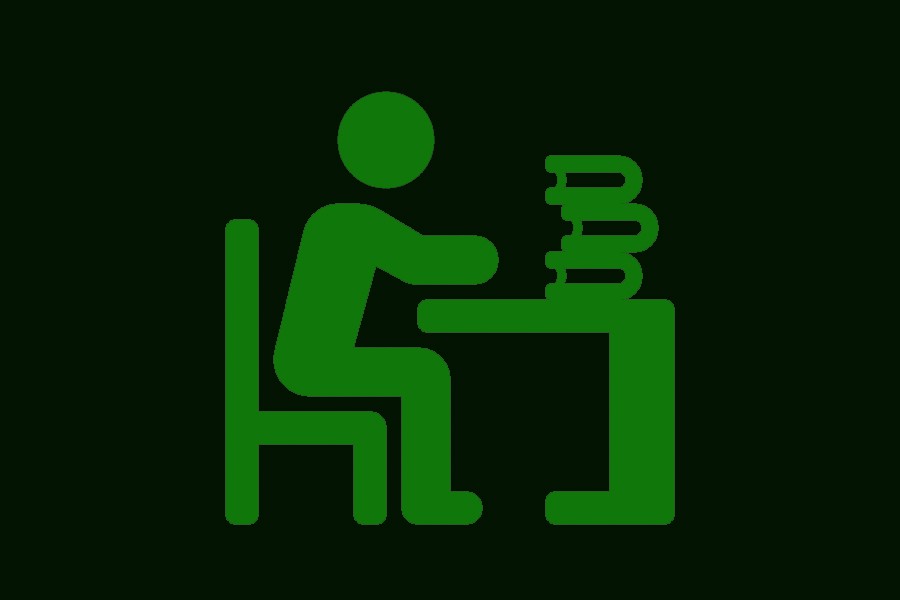Incidents of question-paper leaks at each level of exams in the country have developed an uncanny feeling of panic among students, parents and civil society alike. People have been wondering why it is happening so and what can be done to fight the menace.
The reasons that are commonly advanced as responsible for the phenomenon are:
- Education is now a commodity for sale;
- The education system is now entirely exam-centric and academic results are usually given the highest priority;
- Teachers are not well paid and therefore do not impart lessons properly in their class rooms and have become more interested in coaching outside;
- Coaching centres have flourished as an inevitable result and they compete with each other to win over students and their guardians.
Apart from the reasons above that combine together to form the core motive behind question-paper leaking, there are other attributes as well. It should be ascertained whether or not it is lack of planning for our education system, or simply an administrative lapse of the concerned authorities is responsible. Is it a temporary phenomenon or a long term planning is required to combat the issue? The question that comes ahead of others is in which country it has this not been so.
Looking back at 50 to 70 years from now we find no evidence that teachers were better paid before. Education system had always been exam-oriented not for enlightenment. The fact is that as students are overburdened with thick and complex text books, they are happy if they are given some ideas about probable questions in advance.
There is the factor of addition of two public exams for class V and class VIII which are causing question leaks at the beginning stage of a child. Addition of the above two exams should be reviewed.
The public exam at class VIII is truly redundant. Having a Grade V exam in individual schools on the basis of standardised Board test papers may be an alternative and could be a turning point to check how many students fail or drop out from schools. So information of those students (as dropout rate is very high in grade four to five largely in rural and semi-urban areas) can be recorded.
Boards should allow them to continue school till grade 12 and arrange special support to bring them back to schools. It may be a daunting task for a poor country like Bangladesh and a lengthy process, but it is not impossible either and can be set up by the education authorities with the support of stake holders.
Closing down coaching/learning centre business could be a good decision. But as government prohibited these institutions, they are still running their business under cover of 'learning centres' currently. It is not true that there were no tuition system earlier, it existed but was not as rampant as it is today. School administration should arrange special classes for weaker students if they are concerned.
Bangladesh needs to re-design the education system that will help set up a unique classroom with an interactive curriculum where students will have enough time to be engaged in multiple disciplines, including science and maths using natural resources (not necessarily they require a modern lab). This classroom teaching can change students' purpose of education significantly and make them creative. High school students (grade 9-12) should be engaged in community works and developing leadership skills (during short and long vacations) such as 40 hours of mandatory voluntary work per year (which may be paid or unpaid) aimed at their self-development. So education can be participatory and social change and community development focused.
In particular, we have to look for the sources of question leaks with an eagle's eye so that we can address some issues of fundamental importance to change the current system. The government and stakeholders in education sector can bring back discipline and peace in the education system. These are the issues that can be taken into consideration: n Aspects of effective public service delivery in fragile education contexts n Political participation in curriculum n Effects of electoral problems in education n Impact of violent political practice on education n Corruption in upper level and leakages in fragile education contexts. n Effective regulatory framework and monitoring system.
However the current system is Board exam-focused, so everyone needs to pass these exams and achieve highest possible marks to get admission to a good institution for higher studies.
The right solution is, we should immediately stop colonial SSC and HSC board-exam system, following the Western education system as those are experimented. In North American system students have the opportunity to appear at an exam for a particular subject which they failed on at least two occasions in summer school. If this can be done, we can assume that not only all coaching/learning centres will be closed overnight, they will not find any other ways to survive. Thus parents' money will be saved, students will be relieved of the panic of board exams and their mind will be free to seek knowledge. There will be no issue of leaking questions.
In conclusion, to avoid question papers leaking, Bangladesh education system needs to remove all sorts of board exams up to grade 12 in the first place. Over and above, the country needs to build a happy education model. The removal of all board exams and engaging students in multiple languages, social subjects, community works for live experience, and math and science experiments using methods of nature (going to the field/nature and science trips) will bring about a dramatic effect in Bangladesh education system. It is school teachers and not boards or associates, who will be responsible to set question papers and educate their children in line with national curriculum. Thus, our students will be nurtured under a healthy, creative and natural education system. Interactive, participatory and a happy education model will nurture a student to create a "complete man" (sompurno manush).


